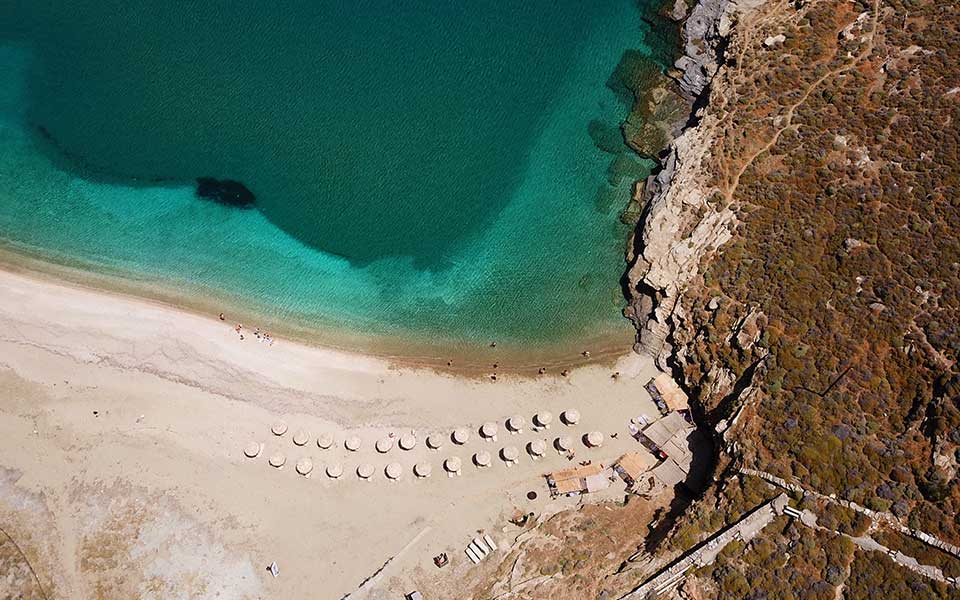Syros and Naxos Shine as Authentic Travel Picks…
Syros and Naxos stand out among…

Andros island
© Shutterstock
Scientists on the Greek island of Andros will use a submarine equipped with a robotic arm and sonar technology to document the state of the Aegean seabed nine years after the contents of a garbage dump ended up there following a heavy rainstorm.
The data will enable scientists to determine the safest and most effective way to collect the waste without causing further damage to the marine environment.
The project, unprecedented in Greece, has even attracted the attention of foreign media.
In 2011, heavy rain caused a large section of the unregulated dump in the area of Stavropeda to collapse, with most of the contents tumbling into the sea. A considerable amount of rubbish was carried away by the sea, spreading across the Aegean, but most of it was or has since been buried under rocks, soil and sand.
Last summer, divers belonging to the nongovernmental organization Aegean Rebreath, which conducts seabed cleanups, visited the location to remove some of the junk and conduct research. The photos they took of the shameful “gulf of plastic corrals” circulated around the globe.
This prompted a reaction by the Andros Maritime Association, which decided to carry out an inspection of the damage with the help of Aegean Rebreath and ALS Marine Consultants, a private company, in order to find the optimal solution. Then Greece’s Environment Ministry stepped in, announcing that the operation would be financed by the Green Fund.
An ALS Marine crew will spend a week working on the seabed where the rubbish lies. “The seabed will be scanned using sonar to get 3D mapping of the area. The objective is to see what the area looks like following the landslide,” ALS Marine managing director Spyros Volonakis told Kathimerini.
“We will also survey the entire area with a ROV (remotely operated vehicle) in order to establish the depth at which the trash is scattered. We deem that most of the garbage lies at a depth of 30 meters, but we will survey [the seabed] to a depth of 50 meters, about a kilometer off the coast, and further and deeper if we need to,” he said.
A team of Aegean Rebreath divers is set to join the campaign on Saturday. “We will supplement the ALS work by performing an underwater volumetric measurement. We must also record the volume of the underwater landfill so that we get a clear idea of the cleanup operation,” said Giorgos Sarelakos, head of the organization.
“We will most likely have to use a combination of methods,” said Volonakis, adding that the team would mainly depend on a vacuum suction pump to transfer waste to the surface.
“We will then have to decide on the proper method of waste treatment,” he said.
Volonakis says it is the first time that experts have tried to collect an entire landfill from the bottom of the sea, so there is no bibliography to rely on.
“It is a challenge for all of us on a national level,” he said.
Several foreign media outlets have expressed an interest in covering the project as international attention on marine environment protection is increasing.
This article was first published by ekathimerini.com
Syros and Naxos stand out among…
New ferry booking data shows how…